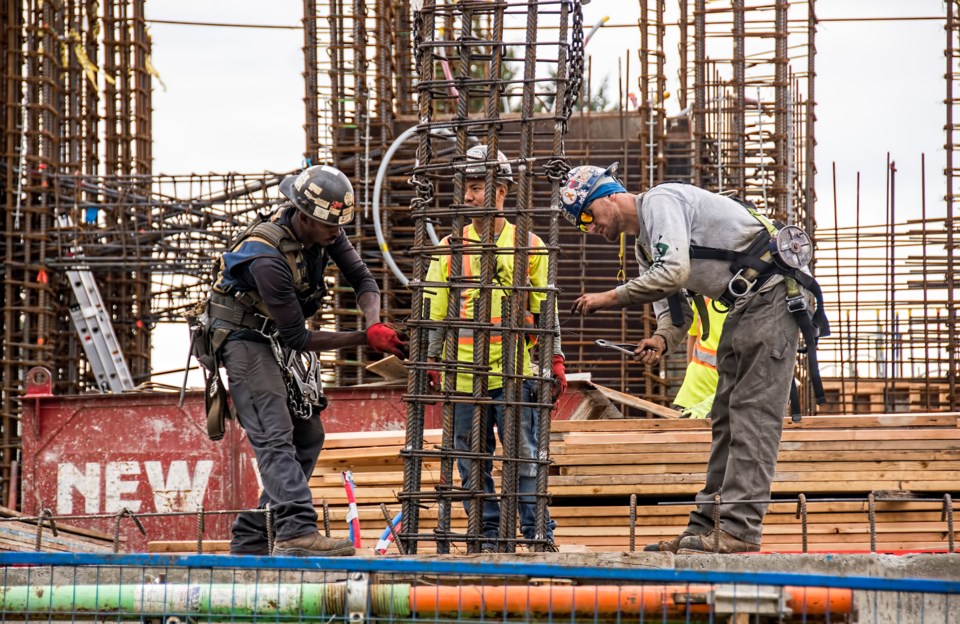The B.C. construction industry has endured much in the past five years. It has weathered a global pandemic, international supply chain disruptions, unprecedented material cost inflation and rapid interest rate escalation. Just as matters had begun to settle, the industry is now confronted with changes in U.S. tariff policy.
American tariffs create a new obstacle to the smooth functioning of the construction industry in B.C. They are a wholly new disruption, and they are uniquely illogical and unpredictable. They are also manifestly illegal and in violation of any acceptable conduct of trade policy. Nevertheless, as it has had to do so often in recent years, the B.C. construction industry is quietly finding ways to adjust and to overcome this new adversity.
Why are the tariffs so disruptive to construction? Because construction depends on cost predictability. Owners of virtually every project, from large civil infrastructure projects to single-family home developers, need to have a degree of price predictability. Consider that construction materials are usually roughly half of any construction budget. Now consider adding 25 per cent or more to the construction materials portion of the budget. It is a degree of uncertainty that creates a massive question mark for any current project proforma. In addition, the chaotic unpredictability of the tariff announcements has removed any ability to plan or predict what price increases to expect, or whether to expect any at all.
In most standard form construction contracts, the risk of tax and duty changes during the life of the project falls on the owner. A general condition of the much-used industry standard stipulated price contract makes it clear that any changes in duties after bid closing increases or decreases the contract price.
In normal times, this is an acceptable risk for most owners. But in the current environment, many owners will simply not accept this risk and, as a result, are refusing to proceed with projects. Alternatively, they are seeking to download the risk on their contractors.
However, owners and contractors are currently looking at innovative ways to share the risk of tariff uncertainty. Creative contract terms are being drafted that seek to allocate the risk of tariff announcements in a fair manner amongst the affected parties.
One challenge with such solutions is determining exactly what price increase is to be shared. It is unfortunately not as simple as agreeing to share a tariff premium following a tariff announcement. This is because construction material pricing will begin to incorporate anticipated tariffs prior to an announcement. If the entirety of the newly announced tariff is shared after such escalation has been applied, the owner might significantly overpay. Conversely, the contractor also runs a considerable risk that, depending on the timing of the tariff announcement, it will end up underpaid. Canadian dollar fluctuations might also off-set an unpredictable amount of any tariff cost premium.
The most sophisticated tariff risk terms pin individual material costs to agreed benchmark pricing in U.S. dollars, at a set time. This requires an analysis of all the potential materials that may be affected, and then agreement on an industry benchmark for those materials at a specific point in time. Increases and decreases in that benchmark during construction are then applied to the project material and shared in some manner.
Establishing benchmark pricing in this manner can be effective, but it comes with several drawbacks. It is time consuming and challenging for owners and contractors to develop and agree upon a mutually acceptable benchmark pricing matrix. Industry benchmarks might also fail to accurately reflect actual changes in material pricing. Actual, local, price escalations do not always match, or even approximate, changes in benchmarks.
Another contractual solution is to include a contract mechanism whereby the parties can seek alternatives if a particular product is impacted by tariffs. These provisions outline a process for notice, a timeline for considering alternatives and the mechanism for a contract price adjustment.
The construction industry in B.C. has overcome substantial adversity in recent years and U.S. tariff policy will be no exception. The industry is already showcasing its remarkable ability to quickly and creatively adapt to evolving circumstances.
Norm Streu is associate counsel with Harper Grey LLP and past chair of the Vancouver Regional Construction Association. Chris Hirst is a partner and leader of the construction and engineering practice group at Alexander Holburn LLP.



